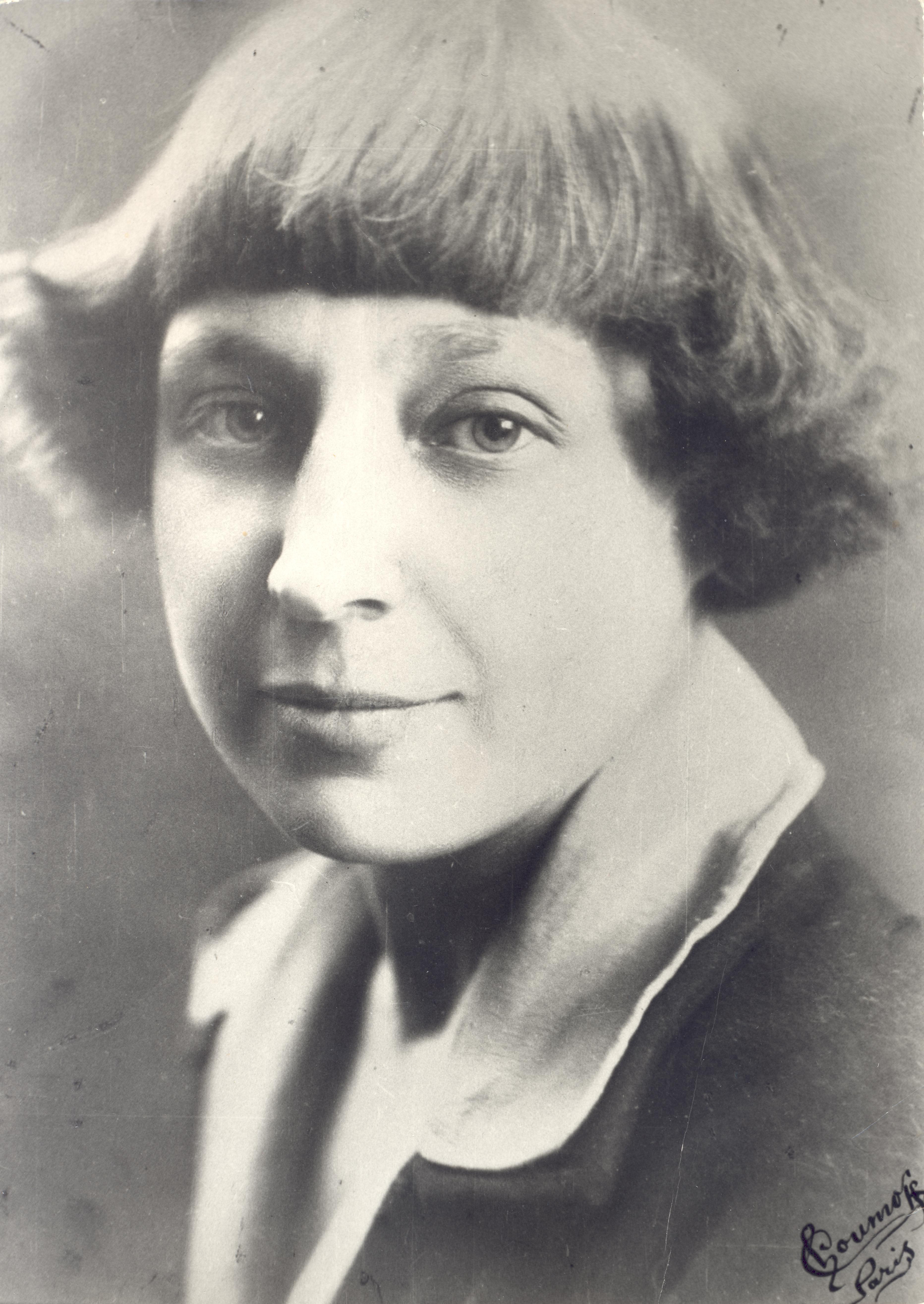I'm writing my Master's thesis.
Here they call it a dissertation, but I choose to call it a thesis anyway. It's been taking up the majority of my time and brain power, so this poor blog has been sadly neglected. So, to show it some love and attention, here I am. Sadly, I have no fun travels to report (though we've planned a vacation at the end of July to Paris!). The result: you're going to hear about my work.

That's Marina Tsvetaeva (1892-1941). She was a poet, a dissident, a sometimes-expatriate, and a mother. Despite being one of Russia's greatest poets of the 20th century, she had the unbelievably difficult life common to nearly all of Russia's most prominent and revolutionary writers that were working from the beginning of the century to the death of Stalin. She wrote poetry, essays and drama, though her prose and plays are largely untranslated.
That, I suppose, is where I come in. Though the constraints of my thesis will prevent me from translating the whole of her play Phaedra, I will be translating the second act, with plans to go on and translate the entire play during the first couple years of my program at Brown. Only small parts of the play have been published in English; my eventual goal is to see the play performed on an American stage - though I doubt the stage will be a large one.
My thesis, of course, will not be just the translation. About half of my project will be a critical examination of the logistical and theoretical aspects of the translation, and I'll be focusing on two specific elements. The first is the difficulties of translating Tsvetaeva's language, as she uses endless neologisms, archaisms, and even fabricated archaisms in the play, which is written in verse. As a non-native speaker of Russian, the linguistic translation will be pretty painstaking, but her use of language is so deliberate and nuanced that there is no way to translate the particularities out of Russian, so I'll be establishing my own rhythm, rhyme scheme and invented or manipulated language. Bored yet? If no, read the next paragraph. If yes, skip it.
The second element I'll be focusing on is what some would call "gendered language", which is a sort of controversial, generic, and meaningless term. Tsvetaeva wasn't focusing on a woman's language, per se, but she was focusing on what she thought of as a maternal language, a style of speaking and operating that's more dominant in the creation of a person's language than their so-called "mother tongue" - a term which doesn't translate well into Russian. These two elements will be more than enough for me to deal with in the thesis, so at least I won't have to worry about running out of material!
Anyway, enough of that. Or, at least, enough of that for you - it's not even enough to qualify as the tip of the iceberg for me. This post, by the way, is a taste of what's to come - when I finally settle in Rhode Island, this blog will slowly evolve into a mainly literary one. There will, of course, be the occasional picture of the trips we're planning on taking around New England and the Eastern half of the United States in general, but be prepared for a new and casually academic character here. What can I say? I get the feeling it'll take over my whole life, so it stands to reason that it'll infiltrate the blog too...
That's all for now, dear readers. A great big pile of books is staring at me.